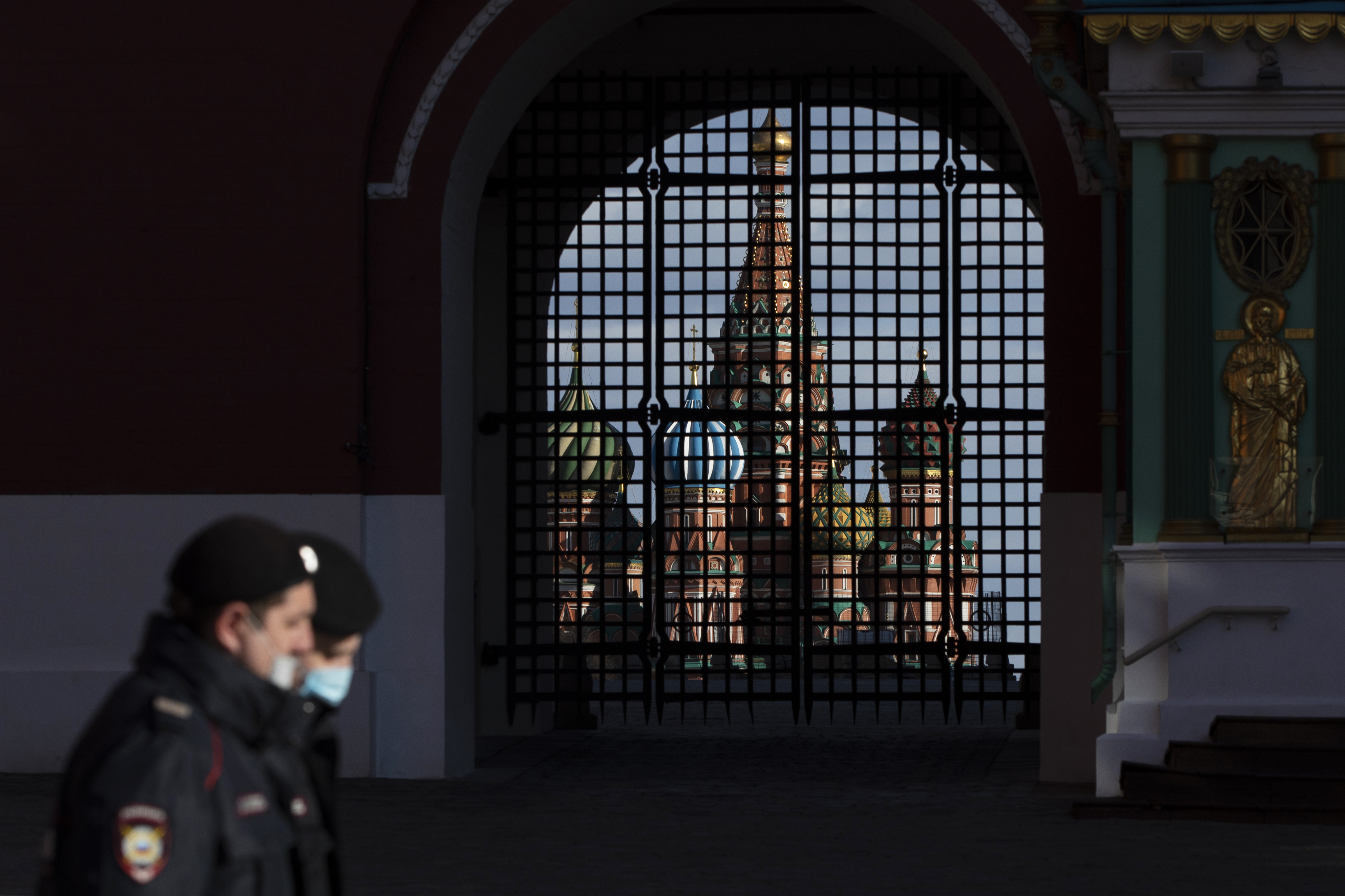As coronavirus spreads, authorities target RFE/RL journalists in effort to control information

Washington, D.C. — As the coronavirus continues to spread, Radio Free Europe/Radio Liberty (RFE/RL) journalists have increasingly found themselves caught between the needs of citizens for reliable information, and the efforts of authoritarian governments to control the public’s understanding of events.
“People in 22 countries depend on our journalism, which is providing critical information to help them protect themselves and keep their families and communities safe,” said RFE/RL President Jamie Fly. “But at the same time, we are facing restrictions and threats from authorities who see the independent media as an obstacle to their efforts to control information for their own purposes. Despite this growing pressure, our journalists will not be deterred from our mission of providing objective journalism to our audiences at a time when they need it most.”
RFE/RL’s audience numbers surged in March as concerned audiences sought accurate information about the coronavirus pandemic amid government inaction, disinformation, and an information void. Compared to the previous month, visits to RFE/RL websites and apps increased 48% to 77 million, page views were up by 43% to 128.5 million, and unique visitors increased 50% to 33.5 million. Spikes were similarly registered on social media platforms, with video views on Facebook rising by 44% to 351 million, and views on YouTube increasing by 18% to 144.5 million. RFE/RL also saw spectacular growth on Instagram — particularly in Persian, Uzbek, and Tajik — with a 46% jump in video views to 67.5 million for the month.
But there has been pushback. On April 5, the Russian State Duma commission on foreign interference announced a review of coronavirus coverage by RFE/RL’s Russian Service and the Current Time network, alleging that the outlets were misreporting the availability of medical equipment, the role of Russian doctors in Italy, and the enforcement of pandemic-related regulations. A Moscow neurosurgeon who spoke with Current Time about a lack of protective equipment and supplies at his hospital was threatened with dismissal. Rights monitors have expressed concern that a law passed on April 1 against knowingly misinforming the public about the coronavirus may be used against reporters who publish coverage critical of the government’s response. The law has already been used to detain a St. Petersburg activist – and to seize her computers and telephone — who had posted concerns on social media about inadequate quarantine measures at medical facilities in a nearby town. Russian independent newspaper Novaya Gazeta says it has taken down an article about measures introduced to tackle the coronavirus in the North Caucasus region of Chechnya following a request by the country’s media regulator, Roskomnadzor. Chechen leader Ramzan Kadyrov had slammed the article as “absurd” and threatened to harm the author, Yelena Milashina.
Restrictions accompanying Kyrgyzstan’s state of emergency have sidelined RFE/RL journalists by requiring that persons seeking to access central Bishkek – where RFE/RL’s local bureau is located — obtain special passes. Authorities initially claimed that the media would be exempt from the new measures, but journalists with Current Time’s flagship Asia program have received no permissions, while reporters with state media have been allowed to access their downtown offices to work.
Earlier this month, as the magnitude of the pandemic was unfolding among populations around the world, authorities in Tajikistan issued the latest in a string of rulings refusing to accredit RFE/RL journalists and staff. The Tajik Service’s YouTube page has recorded an explosive 150% increase among subscribers in the past year, to more than 1 million, with much of the growth registered in recent months because of the absence of alternative reporting about the pandemic and any preventive response from the government. Indeed, the government has avoided public use of the term “coronavirus,” while keeping mosques open and convening public celebrations of national holidays even as its neighbors enforce wholesale lockdowns. When the Service broke the story of the country’s first coronavirus death on April 5, pro-government publishers and trolls retaliated on Facebook, using obscene hashtags to incite violence against its journalists.
Belarus President Alyaksandr Lukashenka’s campaign of denial similarly puts journalists reporting on the pandemic at risk. He has dismissed concerns about the coronavirus as a “psychosis,” and exhorted the public to attend the matches of Europe’s only still-fielded soccer league. Award-winning RFE/RL Minsk-based journalist Alexandra Dynko says that journalists in her country “have been vaccinated against fear,” since “on a daily basis they dare to report on what they see and what they hear.”
These measures all come as audiences in RFE/RL’s markets have been bombarded with conspiracy theories about the virus and Russian, Iranian, and Chinese disinformation about its origins and those countries’ responses to it. RFE/RL’s Armenian and Russian Services have reported extensively to debunk these myths and theories, while RFE/RL’s Bulgarian Service has sought to counter a growing anti-EU narrative propagated by the government that misrepresents the role of EU assistance and threatens public health. RFE/RL’s Central Newsroom has produced video reporting for use throughout RFE/RL’s coverage area on efforts by both China and Russia to target global audiences with COVID-19 propaganda.
About RFE/RL
Radio Free Europe / Radio Liberty is a private, independent international news organization whose programs — radio, Internet, television, and mobile — reach influential audiences in 23 countries, including Russia, Ukraine, Iran, Afghanistan, Pakistan, the republics of Central Asia and the Caucasus. It is funded by the U.S. Congress through USAGM.
Find out more
Contact Joanna Levison
Director of Media and Public Affairs, Prague
- Levisonj@rferl.org
- 420-221-122-080
Contact Martins Zvaners
Deputy Director of Media and Public Affairs, Washington, DC
- zvanersm@rferl.org
- (202) 457-6948
